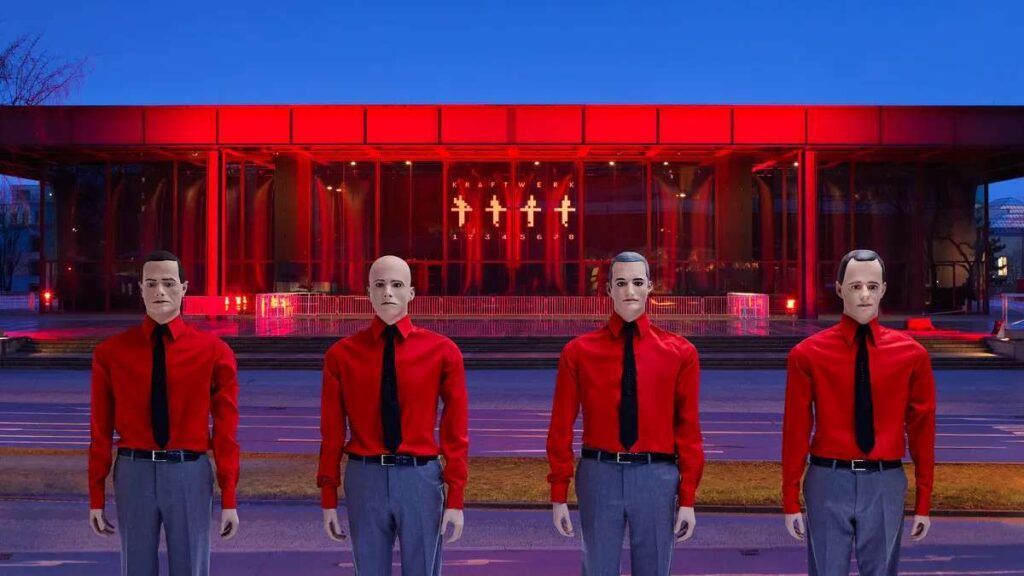
More than a musical group, the expression of a revolutionary force capable of investing everything and everyone. When experimentation is raised to the nth degree and goes beyond the boundaries of sound, creating “the most innovative group ever”.
Writing of Kraftwerk today, fifty-two years since their first record and two after the death of co-founder Florian Schneider, means writing of the end of popular music that dominated the world since the 1960s and for a good three decades was one of the strongest forces behind cultural shifts in the younger generations. It also means writing of its persistence in being a witness to a past that is not here anymore, though one that hasn’t been replaced by any other cultural icon. It is, in a way, still there, basking in the light of a sunset that came and went but is not night yet. Is the profit mindset keeping the lights on, or is it the undying wish to celebrate a time we will never forget? Kraftwerk have been around for half a century, with their first, self-title record coming out in 1970 and their latest in 2003. Since 2008, the band has been led by the other co-founder, Ralf Hutter, and work equally in concert halls and in the ‘power plants’ of contemporary art (MoMA, Tate Modern Turbine Hall, the Bilbao Guggenheim), true to their history.
While obviously Kraftwerk are today a band to remember as they were, with no new original investment needed, we must also recognize the ‘trendy’ marketing positioning of their brand. After all these years, it feels like history acknowledges their paternity of a place where digital technology and art coexist – a kind of identity, rather than a musical genre: that of the impassive, feeling-less human robot that walks through experiences and territories with the help of a kind of music that is the precursor of electro. One cannot disagree with music critic Eddy Cilia as he maintains that Kraftwerk were “the most innovative band ever”. No other band could so comprehensively influence modern pop music as much as they did. The New Wave wouldn’t have appeared if it wasn’t for them (Devo, Ultravox, Depeche Mode, Human League, Cabaret Voltaire, D.A.F., etc.) Moroder’s disco music had its way paved by Kraftwerk, and both techno and house are indebted to them. Their influence really was all-encompassing, for it was a vision of the future, of the world to come. Kraftwerk have been a solid condensation of history, art, creativity, futuristic vision, and Teuton management of a global brand. They will play in Padova, at Gran Teatro Geox, on May 7.
Kraftwerk
7 May Gran Teatro Geox-Padua
www.zedlive.com